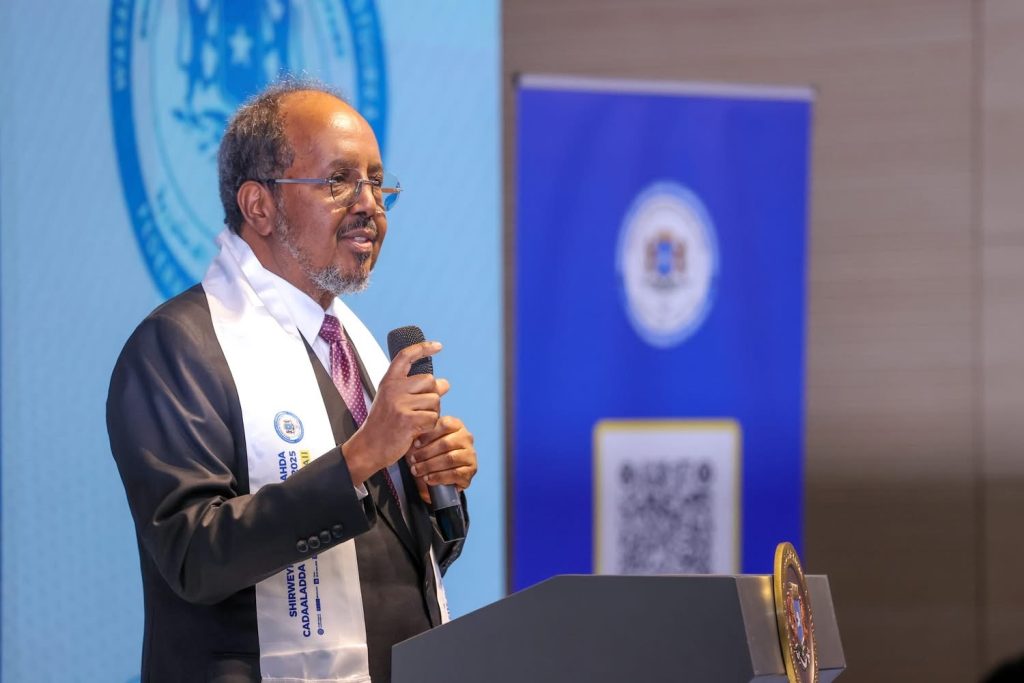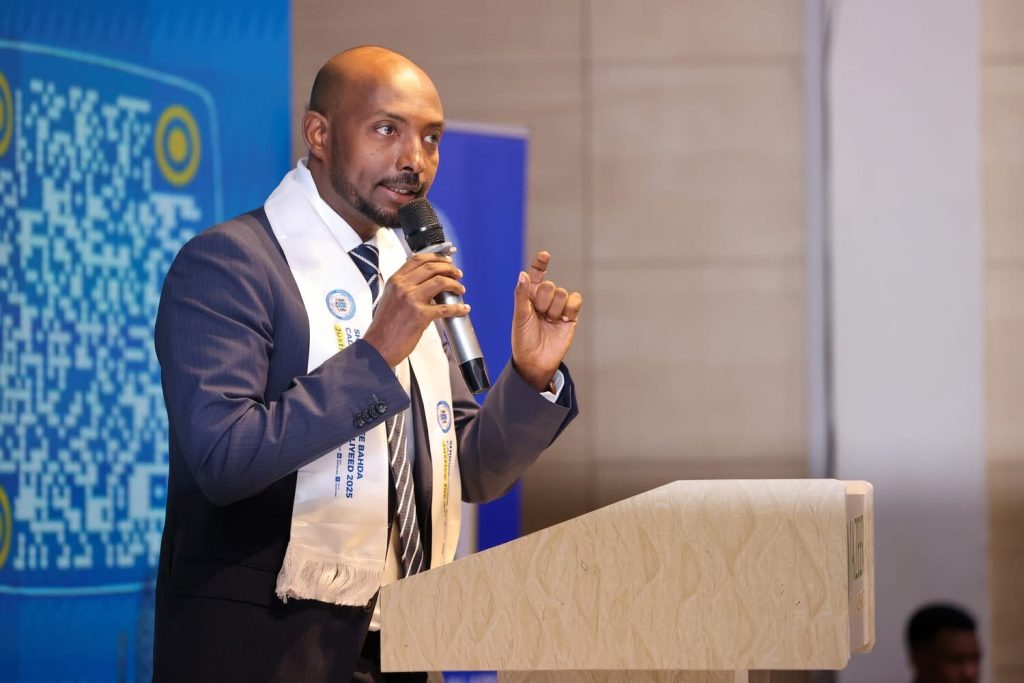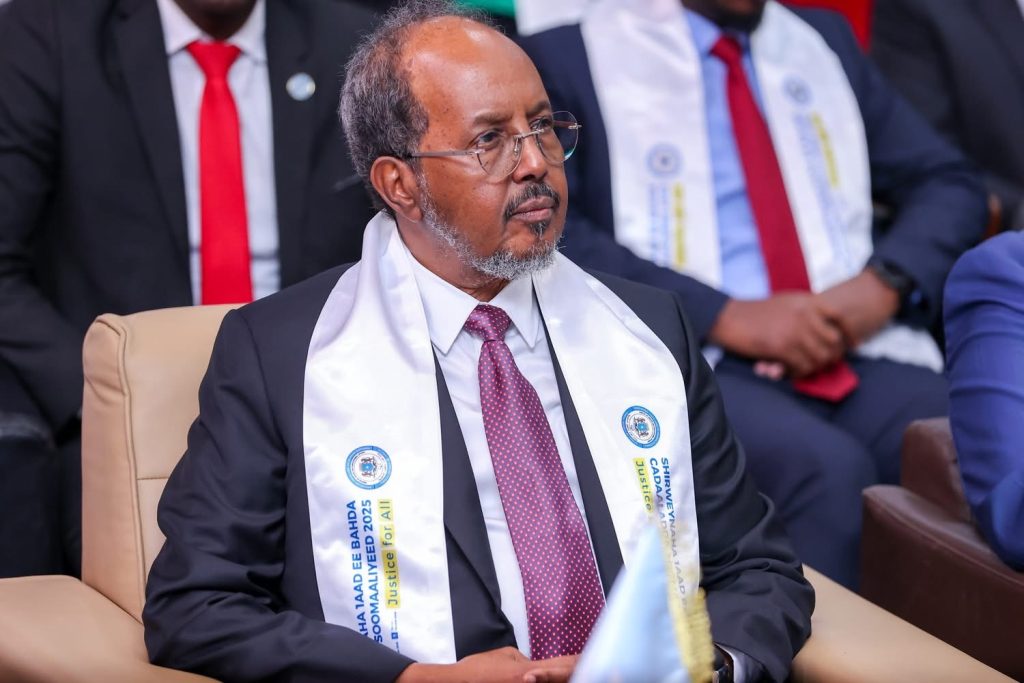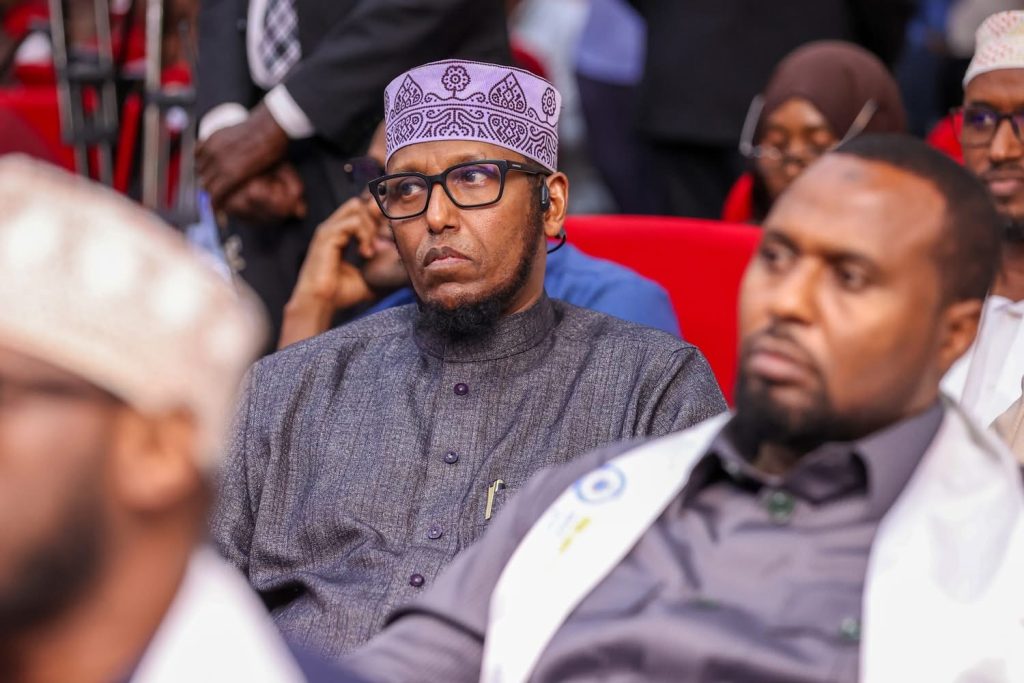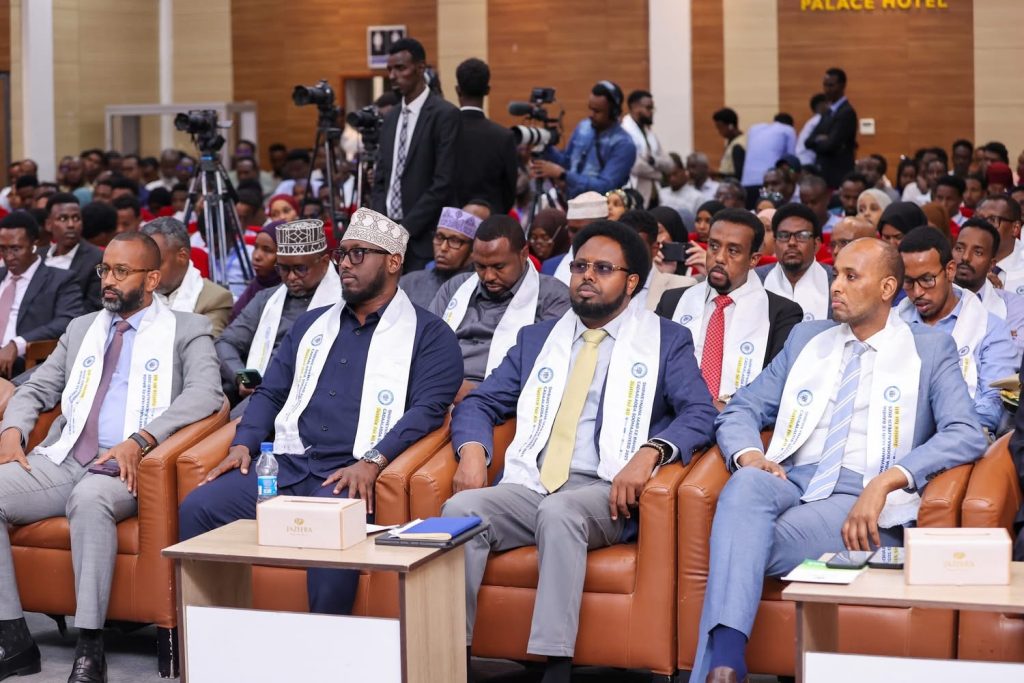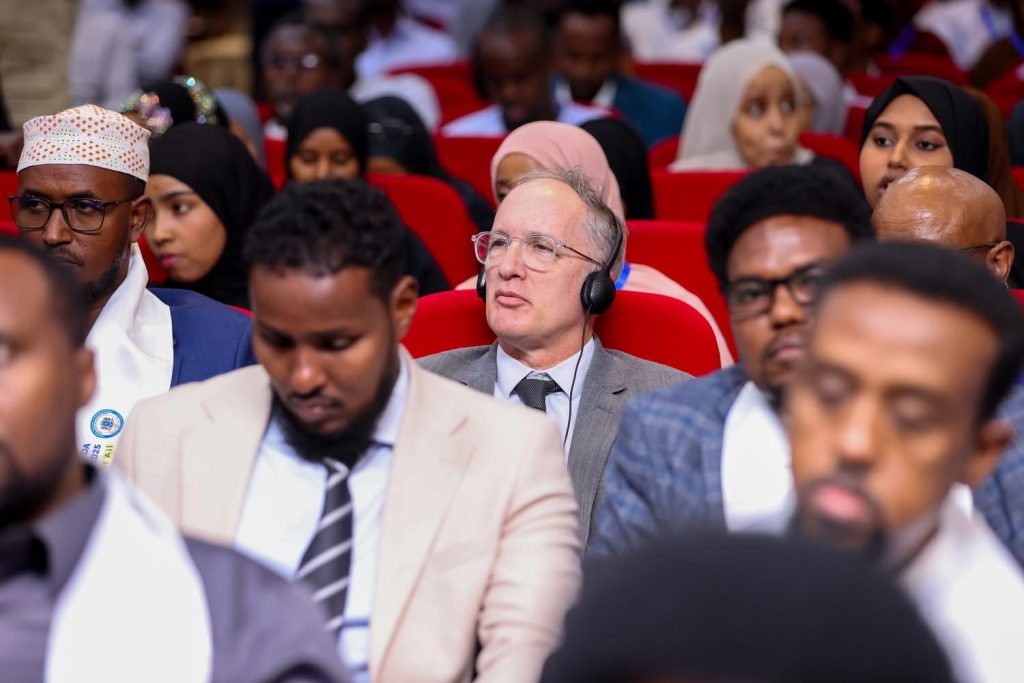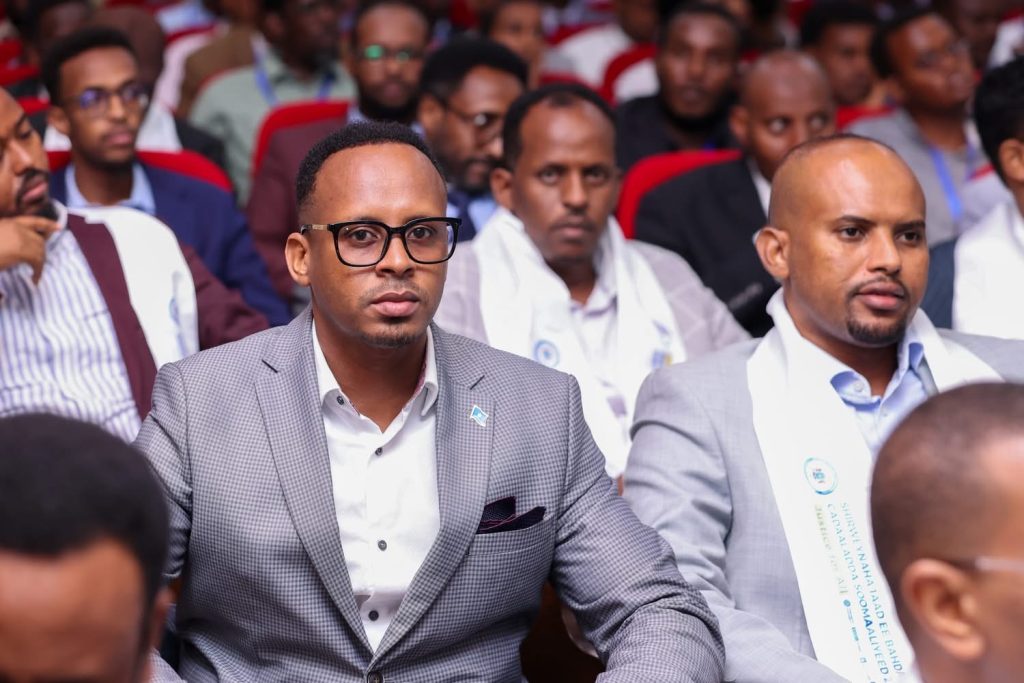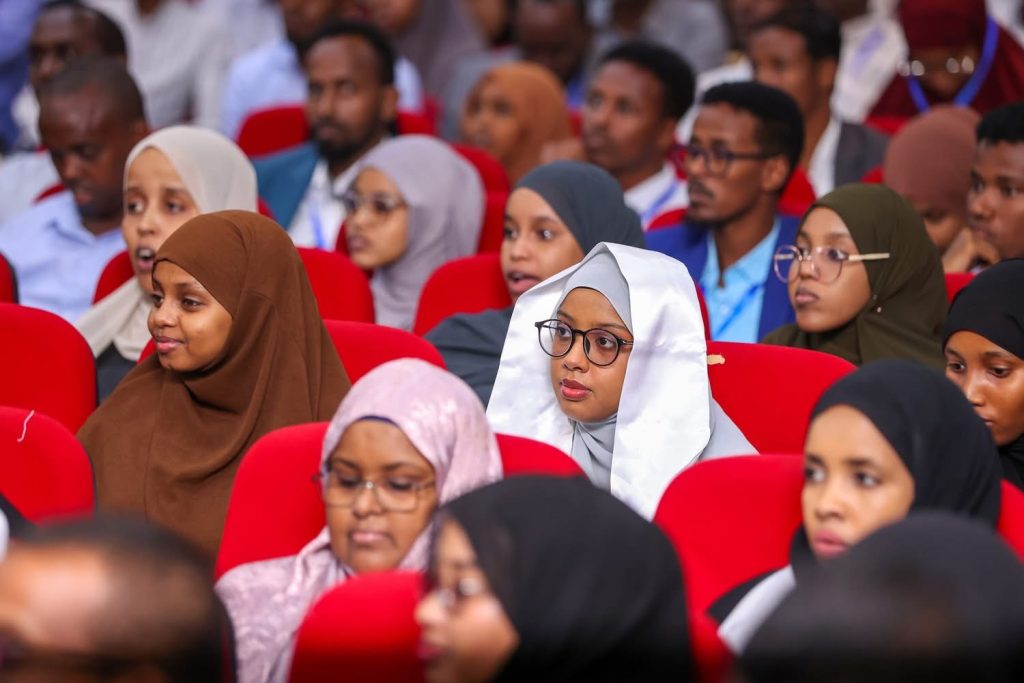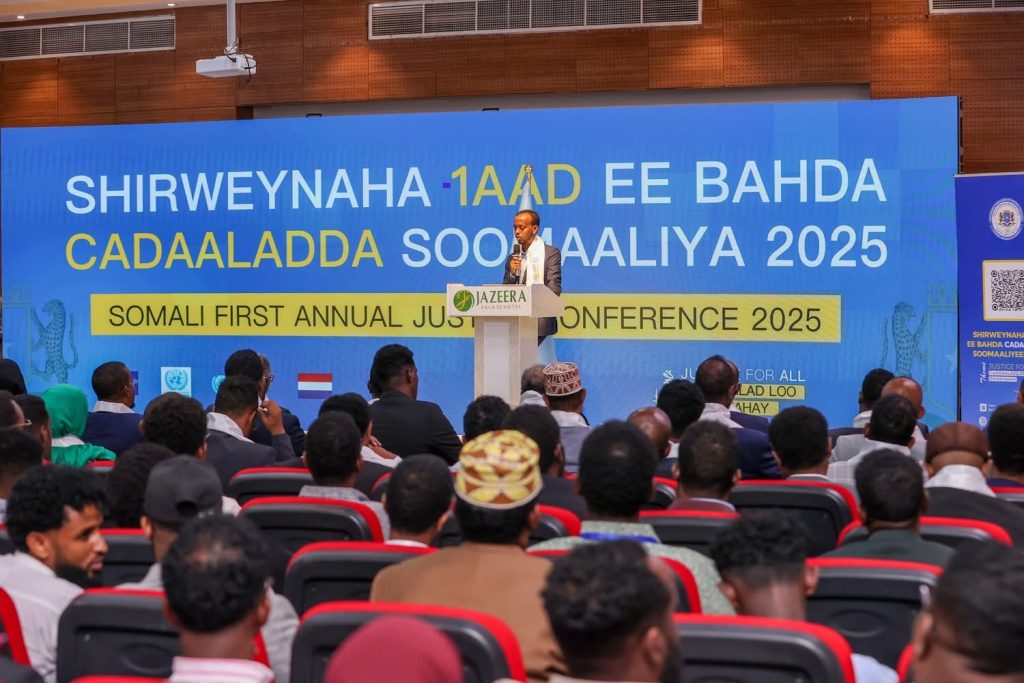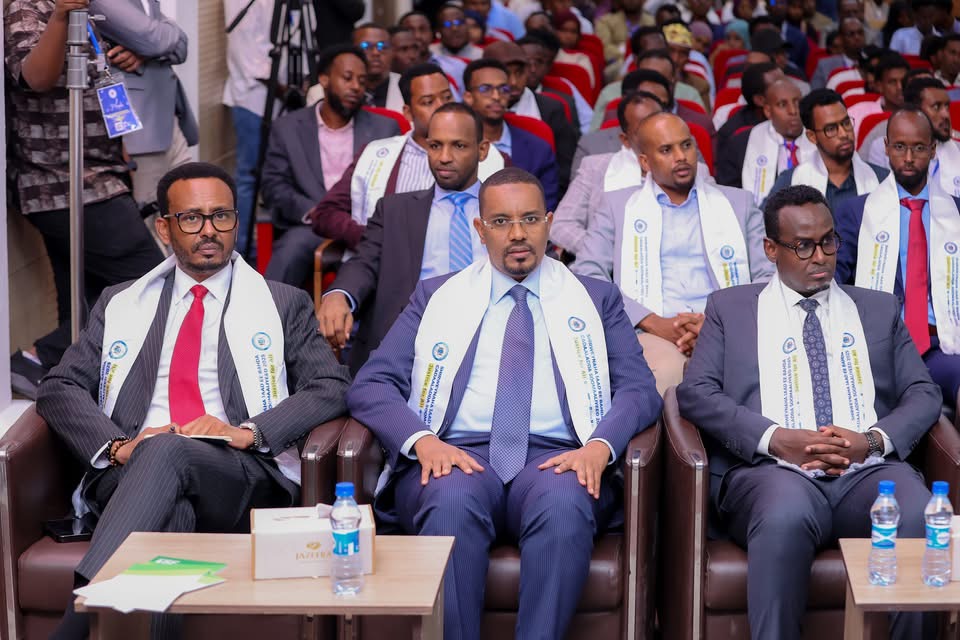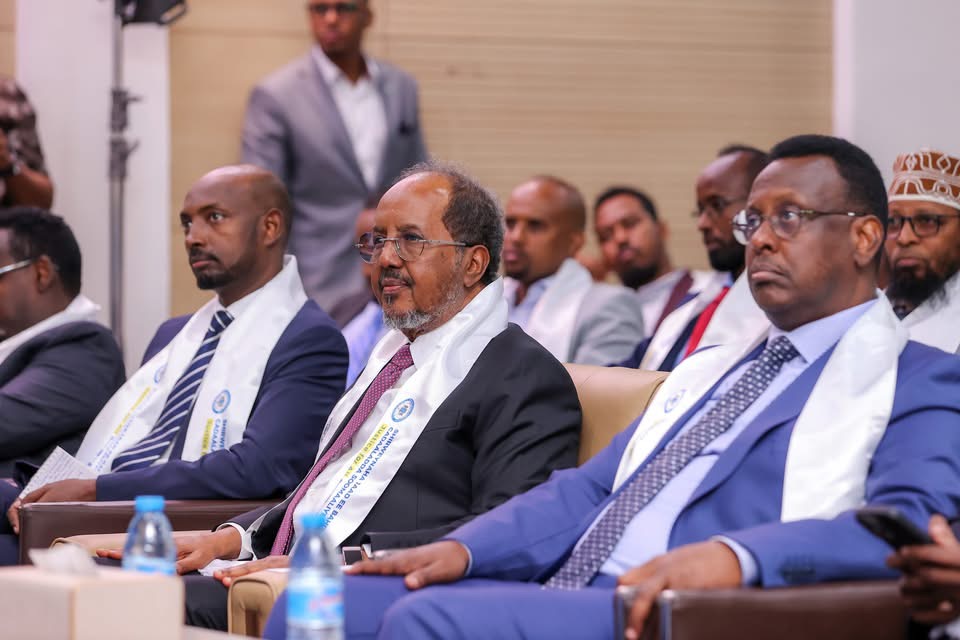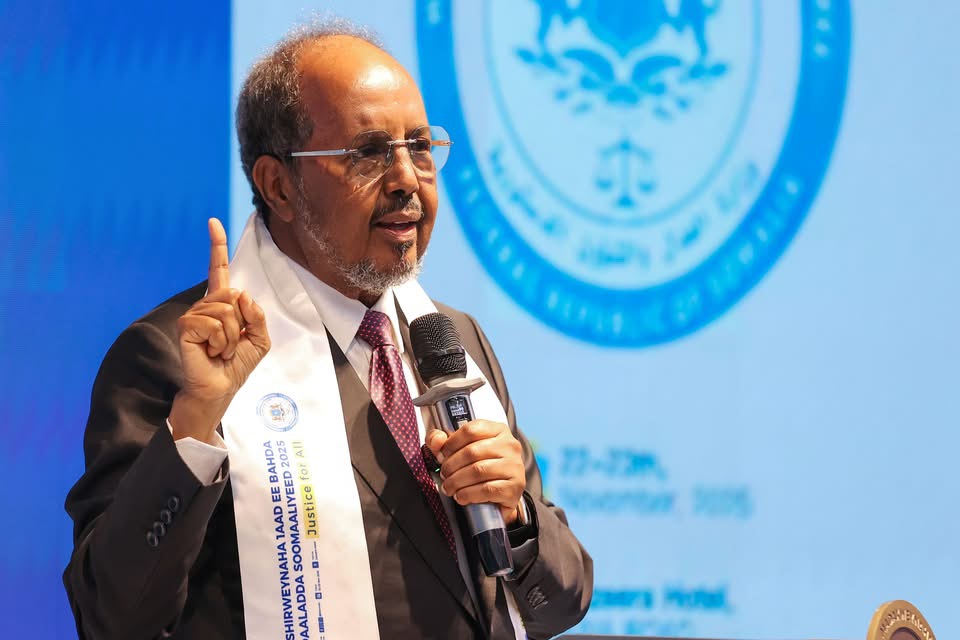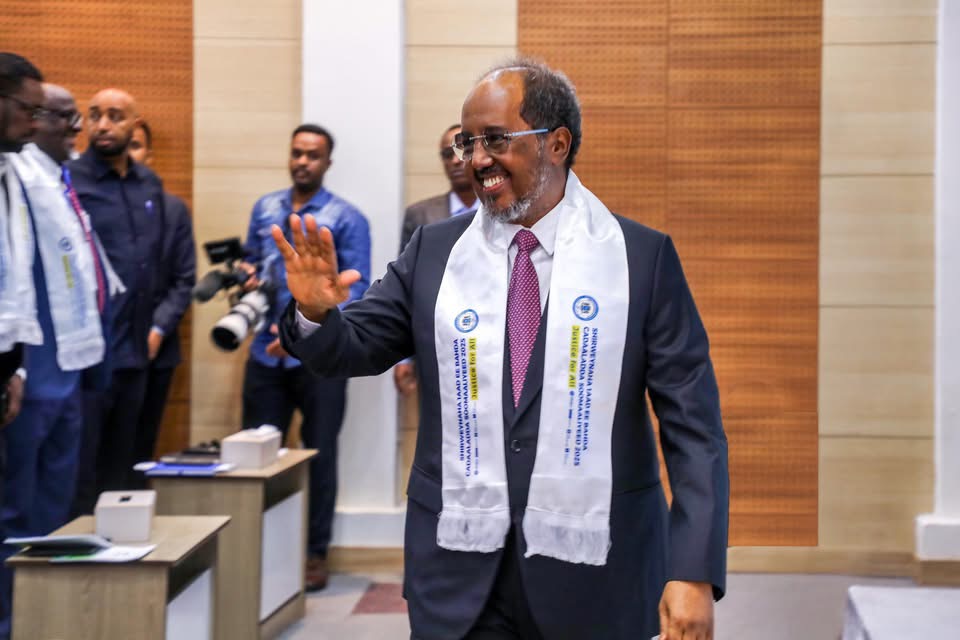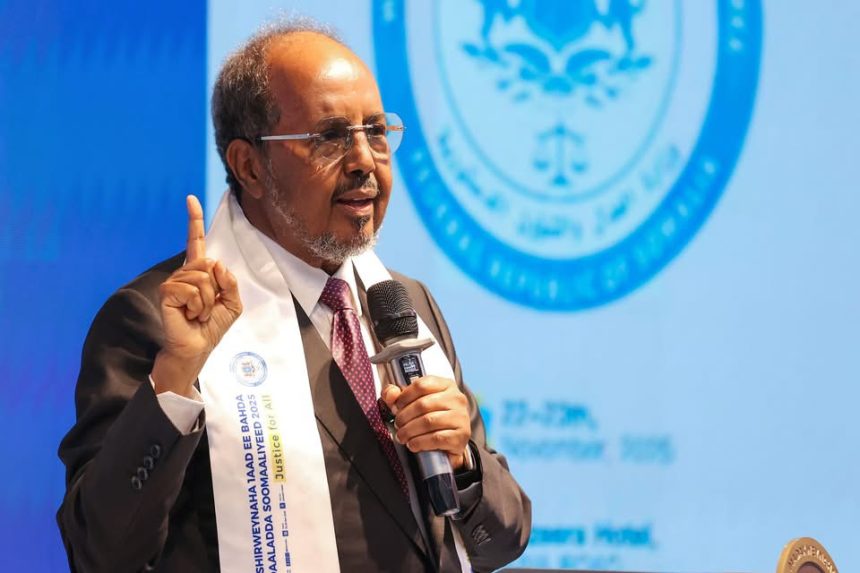Mogadishu, (SONNA) – The President of the Federal Republic of Somalia, H.E. Hassan Sheikh Mohamud, today officially closed the First National Justice Conference, where national plans based on the country’s justice reform strategy were presented. The forum highlighted justice decentralization efforts, achievements made so far, persistent challenges, and the overarching importance of upholding the rule of law.
President Hassan underscored that an efficient and independent judiciary is one of the key pillars of state-building, security, development, and public trust in government. He noted that the Federal Government has taken concrete steps toward federalizing the justice system and building the institutions essential to upholding justice at both federal and state levels — a sign of strengthening judicial structures across the country.
“Our justice sector has made real progress. A clear example is the successful apprehension abroad of Somali nationals accused of criminal offenses, in cooperation with Interpol, ensuring that their cases are returned to the state where the crimes were committed,” President Hassan stated.
The President emphasized that completing the constitutional review remains a national priority crucial for political stability, clarifying institutional mandates, implementing a functional federal system, and updating key legislation to align with modern governance, investment, and legal frameworks. He directed the government to accelerate priority tasks aimed at improving the country’s justice services.
“The Constitution is the foundation of all our national laws — protecting our language, culture, religion, and the rights of every citizen. We must fulfill our commitment to finalize it and move it beyond its provisional status. I commend the 11th Parliament, the most active legislature of the Third Republic during this term,” he said.
President Hassan also outlined key national gains, including enhanced security in the capital to make it globally competitive; major infrastructure investments that are generating employment for Somali youth; the construction of sports and aviation facilities; significant expansion of the armed forces, whose numbers have more than doubled since he took office; and improvements in the education sector, including the hiring of 6,000 teachers, with plans to reach 10,000, and the expansion of Somali National University.
As Somalia prepares for a universal suffrage election, the President reaffirmed that strong legal and judicial institutions are essential to safeguarding citizens’ rights, ensuring transparency in the electoral process, and guaranteeing that every vote is cast freely and securely.
